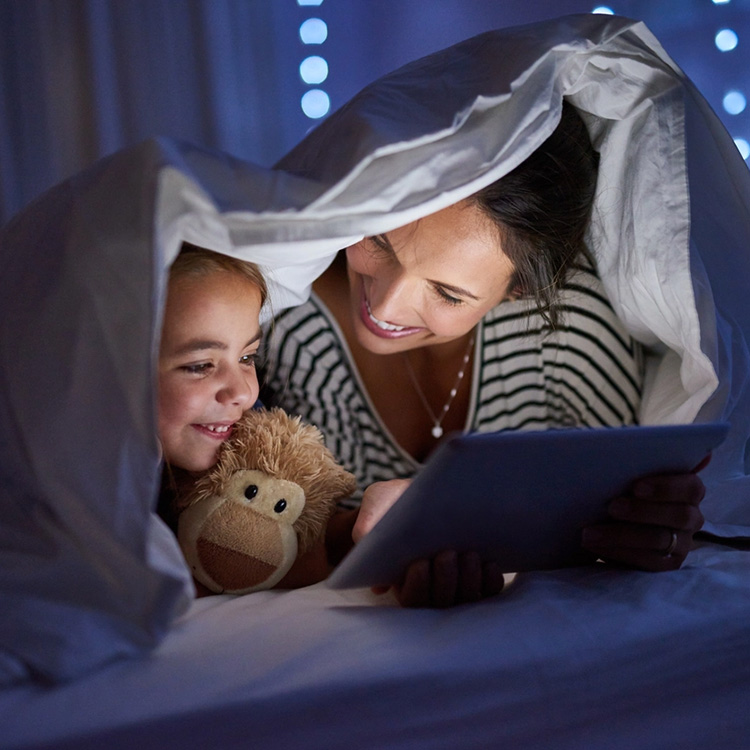Computer & Blue Light Protective Eyewear

What Is Blue Light and Is It Good or Bad?
You might have heard things about how “blue light” is bad for you, but, exactly, what kind of blue light? After all, the sky is blue, and blue is often a color we find soothing and pleasant. By blue light in this context, we mean exposure to sources of blue light, particularly at night. Because blue light is a color our brains associate with the sky and broad daylight, too much blue light at night tricks our bodies into thinking it’s still daylight. Our modern lives greatly increase our exposure to blue light from artificial sources, whilst often keeping us indoors and away from the sun during the day.
What Are the Sources of Blue Light?
There are two main sources of blue light. The first is screens and electronic devices. This includes modern televisions, as well as computer monitors and mobile devices. The other is modern, energy-efficient light bulbs. Incandescent light bulbs tend to produce more yellow light, while LED and fluorescent bulbs are bluer. There are also some minor sources. For example, the USB multi chargers, sometimes called “octopi”, that a lot of people travel with often have a blue light to indicate they are active. Nightlights can also be a blue light source, especially as people tend to see blue light as calming and, thus, choose blue nightlights, especially for young children.
Why Is Blue Light Bad for Us?
The primary reason why blue light late at night is bad for us is that it can mess up our circadian rhythm. Our internal clock is aligned by daylight, so having too much blue light late at night can trigger insomnia, particularly in people who tend to already be night owls. Blue light at night suppresses the natural production of melatonin that tells us when we need to sleep.
There are also some indicators blue light can increase the risk of macular degeneration, cataracts, and contribute to eye strain, especially amongst people who spend a lot of time looking at a screen. Blue light tends to scatter more and is harder for your eyes to focus, meaning they have to do more work. There are some links with cancer, diabetes, heart disease, and obesity, but these may be side effects of the primary problem, which is blue light messing up our sleep.
Blue light is not always bad for us. In fact, exposure to blue light during the day improves mood and alertness. Exposure to daylight is the best, so it is always a good idea to go outside every day, if only briefly. Ideally, you should go outside first thing in the morning, as this will “wake up” your brain and body, helping prevent something called sleep inertia where you are only part of the way awake.



